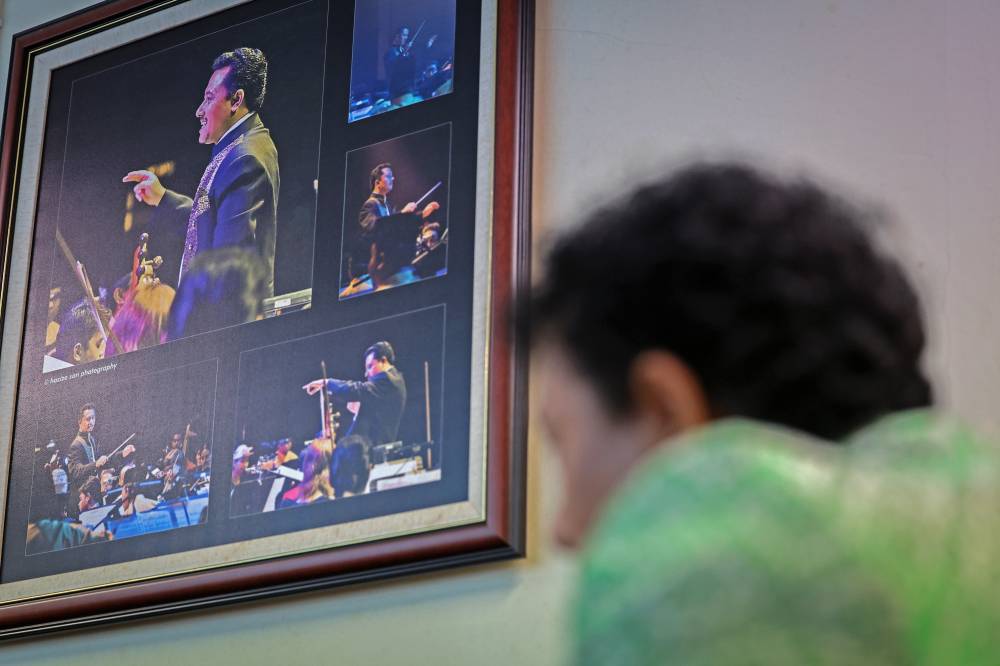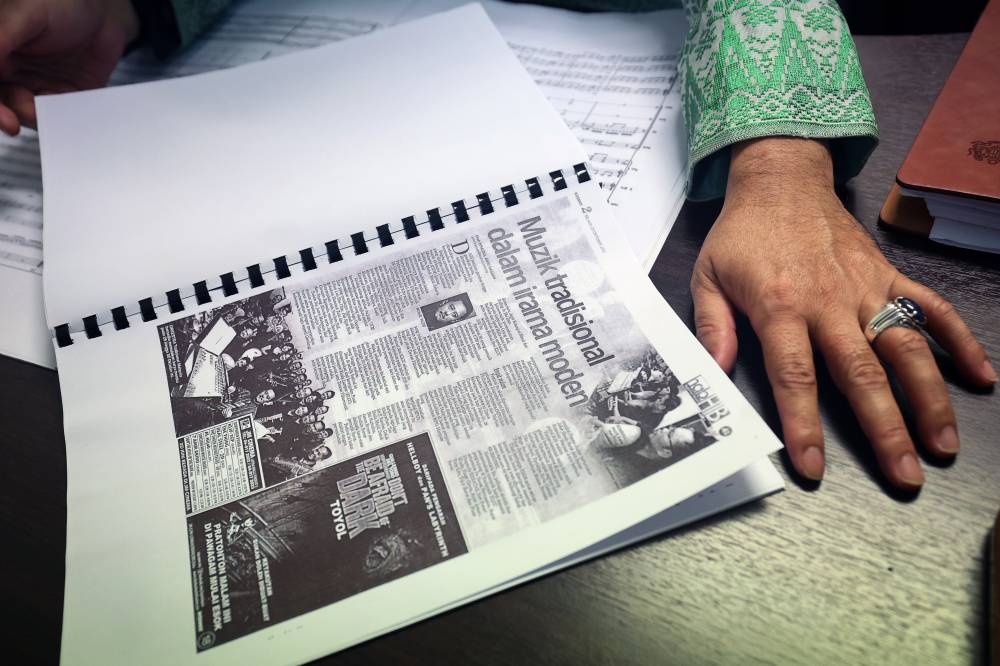Behind the scenes of Malaysia's traditional orchestra
OTM has 25 permanent musicians, but with the involvement of guest musicians, the number can reach up to 86 for a performance.

KUALA LUMPUR - At an orchestra performance, one figure stands out, guiding the musicians with precise and expressive gestures: the conductor or music director. This role is equally vital for Orkestra Tradisional Malaysia (OTM).
Mohd Yazid Zakaria, 56, is the driving force behind OTM. He is also responsible for preparing the concept papers and organisational structure for the orchestra group under the patronage of Istana Budaya since its official establishment 14 years ago.
"I have always been passionate about music and dreamed of performing on stage since I was a child. Previously, I worked with the Petronas Performing Arts Group for 17 years. When the opportunity arose, I came to Istana Budaya specifically to establish OTM. OTM is like my baby,” he told Bernama.
According to Mohd Yazid, OTM is a unique orchestra that combines traditional musical instruments from various ethnic groups in Malaysia. It plays a crucial role in shaping a distinctive national musical identity, promoting harmony, and fostering a spirit of unity among Malaysia's diverse communities.
Currently, OTM has 25 permanent musicians, but with the involvement of guest musicians, the number can reach up to 86 for a performance.
OTM uses more than 30 types of traditional musical instruments, divided into five sections: bowed string instruments like the rebab, violin, and erhu; plucked string instruments like the gambus, sitar, yangqin, pipa, and sape; gong instruments like the gamelan, kulintangan, and caklempong; wind instruments like the flute and serunai; and percussion instruments like the rebana, tabla, and geduk.
"It is not easy to combine all these traditional musical instruments, as it requires skills not only in conducting, arranging, and directing music but also in communicating through the instruments.

"However, we don't just play traditional songs; we also explore various genres such as pop and contemporary music, which indirectly attracts interest, especially from the younger generation," shared Mohd Yazid, who also serves as the Deputy Director of Artistic Affairs at Istana Budaya.
Therefore, Mohd Yazid, who holds a Bachelor's degree in Music from Universiti Teknologi MARA, requires all members of OTM to have skills in understanding musical notation to ensure they can communicate effectively and deliver music accurately and harmoniously.
"At the onset of OTM's establishment, many traditional musicians played 'by heart,' relying solely on their knowledge and experience. We want all these traditional musicians to reach international and professional standards, so they are on par with Western symphony orchestras," he said, expressing his admiration for Greek musician and composer Yiannis Chryssomallis.
To this day, OTM has had the opportunity to perform various shows and successfully promote the country on the international stage. This includes programmes such as the Titian Budaya Malaysia-Singapura, Konsert Lentera Timur Dato' Siti Nurhaliza, Konsert Takkan Melayu Hilang Di Dunia bersama Wings, Konsert ASEAN Extravaganza and Konsert Tanah Airku.
Additionally, OTM has organised programmes such as Jangkauan OTM: Sounds of Malaysia and OTM: On The Street to engage the younger generation, aligning with its founding goal of encouraging greater appreciation for local traditional arts.
"Most young people today are not familiar with or exposed to traditional music. However, when we implement such programmes, we see many of them showing interest and starting to learn," he said.
Moreover, aside from being involved in the establishment of OTM, this fifth child of seven siblings has achieved personal success by leading OTM to win five music awards at the Vietnam Music Festival, the Best Song Composition Award at the Cameronian Arts Awards, and recognition as the conductor for the recording of the Turkish National Anthem.
He is also actively involved in the ASIA Traditional Orchestra in South Korea and the CASEAN Consonant ensemble in Bangkok, Thailand, with his expertise recognised by the ASEAN-China Training Centre for Artists at Guangxi Arts University.
As a result of his hard work, Mohd Yazid received the ‘Anugerah Tokoh Pekerja Negara Perkhidmatan Awam (Kumpulan Pengurusan dan Profesional)’ in conjunction with the Labour Day 2024 celebration which was presented by Prime Minister Datuk Seri Anwar Ibrahim on May 1.
"I am proud because this award recognises our efforts in promoting multi-ethnic art and culture in Malaysia, but my struggle is not yet over, especially in preserving traditional musical arts.
"I hope OTM will continue to progress to an international level and become an important entity representing Malaysia on the world stage,” he said, expressing his dream of the orchestra performing at the Royal Albert Hall in London one day. - BERNAMA














